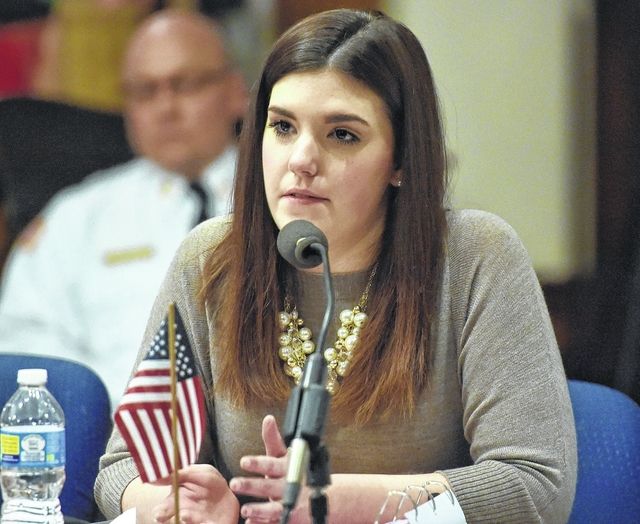Click here to subscribe today or Login.
WILKES-BARRE — The last time the city attempted to pass an ordinance banning discrimination based on a person’s sexual orientation was in 1994, the year Beth Gilbert was born.
At that time, the city council opposed amending the city’s existing laws, citing a lack of public support for the change. But a lot has changed in the past 22 years, giving Gilbert, a Democrat and first-term city councilwoman, hope her proposed ordinance to protect LGBT rights will fare better and expand on the limited law already on the books.
She plans to discuss the legislation with fellow council members at Tuesday’s work session and introduce it at Thursday night’s city council meeting. The public will be able to comment on it at the meeting, but not at the work session. Both begin at 6 p.m.
“I believe that public opinion has changed tremendously on this subject and that we have come a long way in embracing members of the LGBT community,” Gilbert said.
But there is still progress to be made on the issue and the ordinance is one way to put Wilkes-Barre “on par with our neighboring municipalities” of Pittston, Dickson City and Scranton, she said.
Municipalities have been at the forefront of passing laws to prohibit the discriminatory firing, eviction and denial of service to lesbian, gay, bisexual and transgender people. The state, however, is moving at a slower pace and later this month lawmakers are holding a hearing on amending the Pennsylvania Human Relations Act to include protections for LGBT people regarding state employment and benefits.
The city will have company as it contemplates Gilbert’s ordinance, with a similar measure coming before the Luzerne County Council for a vote Tuesday night.
County Councilman Rick Williams, an Independent who introduced an ordinance last month, said there was no coordinated effort between himself and Gilbert.
“I think the time is right,” he said. Should a majority of the 11-member county council approve it, the ordinance will go into effect 15 days later, he said. Passage would show the world “we’re a welcoming community,” Williams said, adding, “I think it’s good public policy.”
Under the city’s protocol, it takes two readings to approve the ordinance, which would become law 10 days after the second reading. Both ordinances are based on one adopted by Pittston in 2013, and call for the creation of a Human Relations Commission to address discrimination based on “actual or perceived race, color, sex, religion, ancestry, genetic information, national origin, sexual orientation, gender identity or expression, familial status, marital status, age, mental or physical disability, and use of guide or support animals and/or mechanical aids.”
Gilbert said she has spoken to members of the local LGBT community who have faced discrimination in the city.
“I am sure there will be some opposition, but the majority of people I have spoken with support the ordinance,” Gilbert said. “They believe it is long overdue.”





